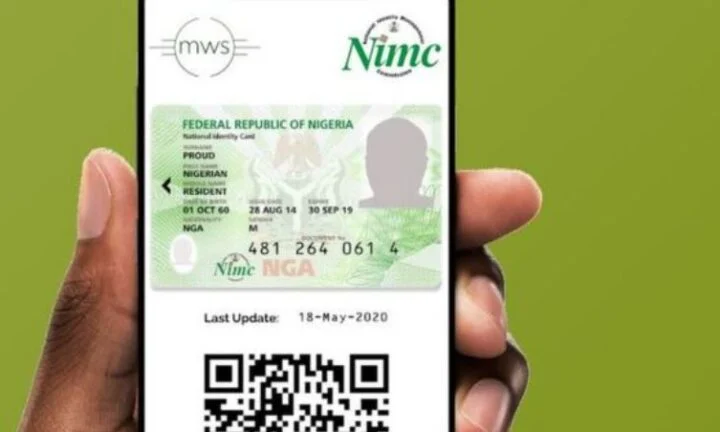As the clock ticks down to March 1st, 2024, approximately 85.51 million bank customers in Nigeria are on the brink of losing access to their funds due to complications in linking their National Identification Numbers (NINs) and/or Bank Verification Numbers (BVNs) to their accounts.
This revelation stems from an in-depth investigation conducted by NATIONAL ECONOMY.
Data obtained from the Nigeria Inter-Bank Settlement System (NIBSS) paints a concerning picture: Nigeria boasted 146 million active individual bank customers as of December 2022. However, as of January 26, 2024, only 60.49 million BVNs had been successfully linked, while roughly 104 million NINs had been issued by December 2023.
With less than 24 hours remaining until the deadline set by the Central Bank of Nigeria (CBN), Nigerians are grappling with the arduous task of verifying their NINs with the National Identity Management Commission (NIMC). Many are encountering significant hurdles in this process.
The CBN’s directive to banks to restrict transactions on accounts lacking linked NINs and BVNs, effective March 1st, 2024, has sent shockwaves through the banking sector.
This directive, communicated via circular to all deposit money banks, underscores the critical importance of NIN and BVN linkage, extending the requirement even to Tier-2 and Tier-3 accounts.
Should the deadline hold firm, an estimated 85.51 million bank customers could find themselves in financial limbo, unable to access their hard-earned funds.
In response to these challenges, Abisoye Coker-Odusote, the Director-General of the National Identification Management Commission (NIMC), addressed the issue during a management retreat in Lagos.
She revealed that the commission had identified numerous irregularities and unethical practices during NIN enrollment and modification procedures, prompting a temporary halt to NIN enrollment activities for Front-End Partners (FEPs).
Coker-Odusote emphasized the pivotal role of FEPs in expediting the NIN registration process, urging meticulous handling of candidates’ information to safeguard the integrity of the country’s identity database.
Despite the commendable expansion of the National Identity Database to over 104 million captured NINs, with plans to register an additional 20 to 25 million NINs by the end of 2024, Coker-Odusote stressed the imperative of continued efforts to enroll more citizens, particularly those in underserved areas and vulnerable populations.
On the front of NIN-SIM linkage, Dr. Aminu Maida, the Executive Vice Chairman/CEO of the Nigerian Communications Commission (NCC), shed light on its significance in authenticating and protecting individuals’ identities.
He urged telecom subscribers to promptly submit their NINs to their service providers to complete the linkage process, emphasizing the critical role it plays in enhancing national security.
Meanwhile, some bank customers have expressed frustration with the NIN enrollment process. One customer of a tier one bank recounted receiving a message instructing her to rectify her BVN but dismissing it as a phishing attempt. Such sentiments are echoed by many who are contemplating transferring funds to accounts without BVN/NIN issues or withdrawing funds altogether to avoid potential disruptions.
In response to the impending deadline, Opay, a prominent mobile money operator, issued a stark warning to its users via social media. Effective March 1st, 2024, accounts lacking NINs or BVNs would face restrictions on transactions, in strict adherence to CBN directives.
As the deadline looms, millions of Nigerian bank customers find themselves caught in a race against time, navigating a maze of bureaucratic hurdles in a bid to safeguard their financial access. The outcome of this high-stakes saga remains uncertain, with implications that could reverberate throughout the nation’s banking landscape.





